White wine vinegar is used often in recipes but don’t worry if you don’t have any on hand. You can easily use a replacement for white wine vinegar, such as one of these nine White Wine Vinegar Substitutes.

White wine vinegar or one of these substitutes can be used in many different ways. Try adding it to salad dressings, in recipes or drizzling it on top of grilled fish or chicken for an extra flavor boost!
Jump to:
- Best Substitutes for White Wine Vinegar
- What is white wine vinegar?
- Storage
- 9 White Wine Vinegar Substitutions
- Apple Cider Vinegar
- Balsamic Vinegar
- Dry White Wine
- Lemon Juice
- Mirin
- Red Wine Vinegar
- Rice Vinegar
- White Balsamic Vinegar
- White Vinegar
- Recipes made with vinegar
- Easy Recipes made with Vinegar
- Conclusion
Best Substitutes for White Wine Vinegar
White wine vinegar has a distinctive flavor that works well with many foods.
It is a favorite vinegar used in numerous recipes for its robust flavor.
It is an especially favorite ingredient in salad dressings and marinades, in addition to other recipes.
Although a common vinegar, not everyone has white wine vinegar in their pantry. But don't worry, there are other types of vinegar that you can use instead.
If you are among those people and don't want to buy it for just one recipe, the easiest way is to use another ingredient that offers the same flavor.
White wine vinegar is flavorsome and adds a wonderful depth of flavor in dishes and salads and the good thing is that it has several substitutes.
So, if you don't have this particular vinegar in your pantry, you can use one of the following substitutes to get the same tangy and acidic flavor.
The general rule is that most vinegars can be substituted for white wine vinegar; however, you may need to adjust the amount you use depending on the intensity of the flavor of replacement that you choose.
When you are looking for a good substitute, there are a few easy to find alternatives for white wine vinegar listed for you below.
What is white wine vinegar?
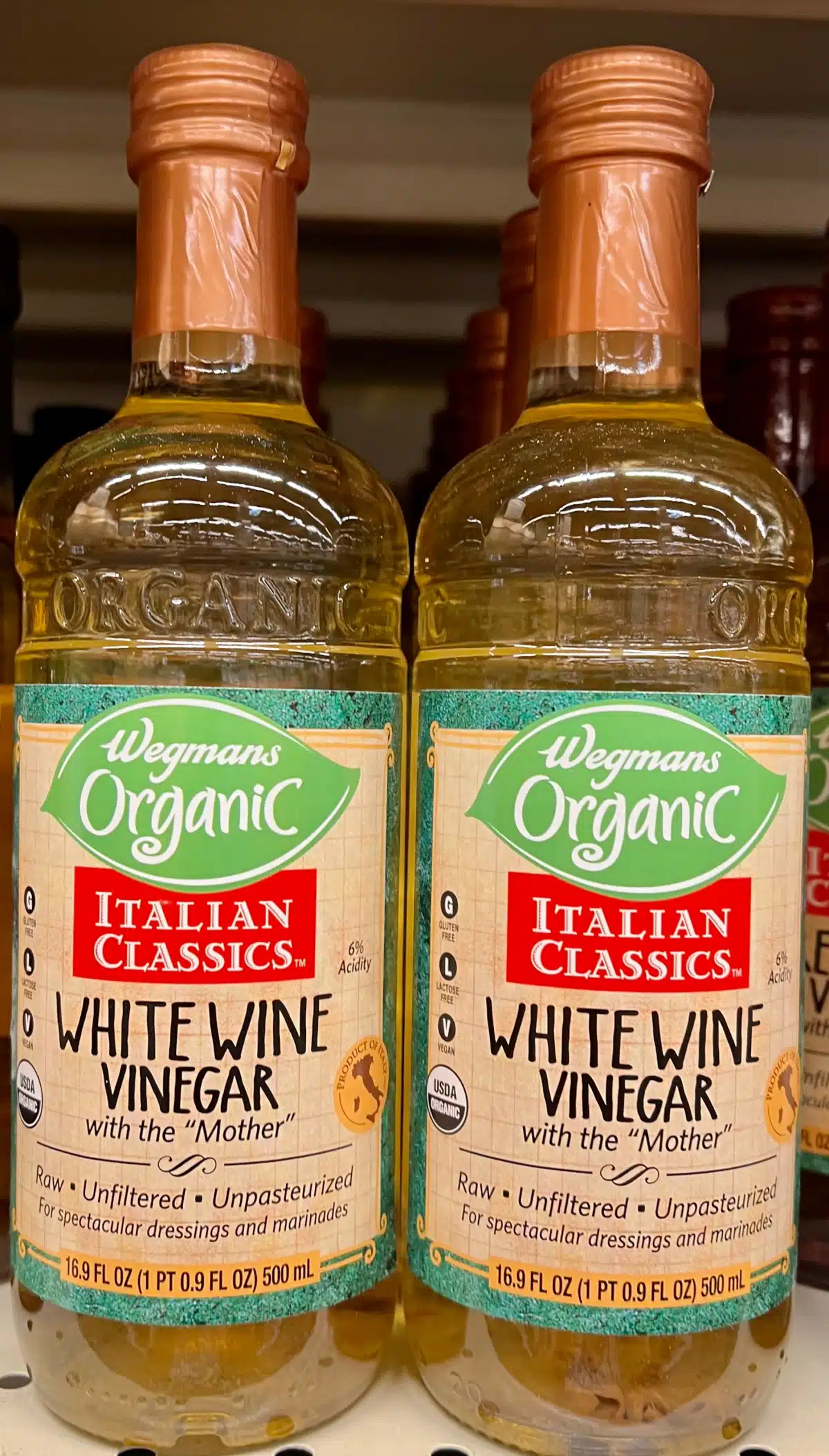
White wine vinegar is a popular vinegar, and it's easy to see why. It has a light, clean taste that goes beautifully with grilled foods and salads.
The subtle flavor of this vinegar makes it easy to pair with many different kinds of dishes, so it's a great choice if you're looking for an all-around vinegar.
White wine vinegar, sometimes called chardonnay vinegar, is typically made from white wine, although some companies use red wine in their products as well.
The fermentation process gives the vinegar its distinctive golden color and milder taste than red wine vinegar.
As its name suggests, this flavorful vinegar is pale yellow or light gold in color.
This popular vinegar has a tangy aroma that may smell slightly acidic at first but will mellow out after being opened for a few days.
White wine vinegar can be used in many different ways in recipes, salad dressings and marinades and even as a drizzle on top of grilled fish or chicken for an extra flavor boost.
As an Amazon Associate I earn from qualifying purchases.
Be sure to visit the Swirls of Flavor Amazon Storefront for GG's personal kitchen recommendations!
Hungry for more? Follow along on Facebook, Instagram, Pinterest and Twitter for my latest recipes.
Storage
- Store vinegar at room temperature in a cool dark place such as your cabinet or pantry.
- When stored properly, the shelf-life of vinegar is indefinite.
- Vinegar does not need to be stored in the refrigerator.
- Because of its level of acidity, vinegar will not spoil at room temperature.
- See more guidelines at USDA.gov.
9 White Wine Vinegar Substitutions
Apple Cider Vinegar
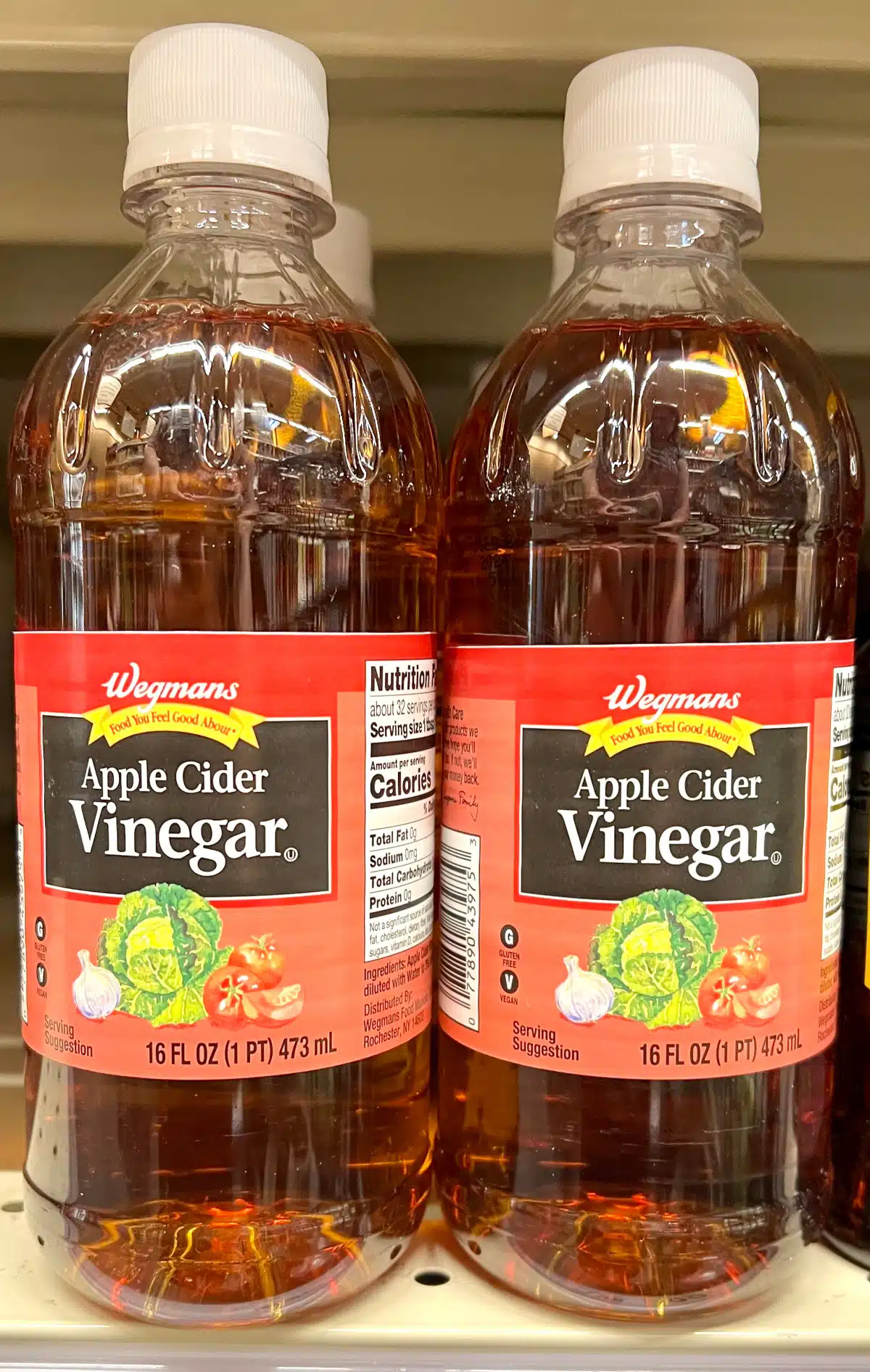
Apple cider vinegar is a commonly used as a sub for white wine vinegar.
It is also slightly sweeter than white wine vinegar, so it can balance out the flavor of your dish without being overpowering.
But keep in mind that apple cider vinegar is less acidic and not as strong.
Apple cider vinegar also has some added benefits that white wine vinegar doesn't have.
It is rich in vitamins and minerals, including potassium, calcium, and iron making it healthy for your body.
Balsamic Vinegar
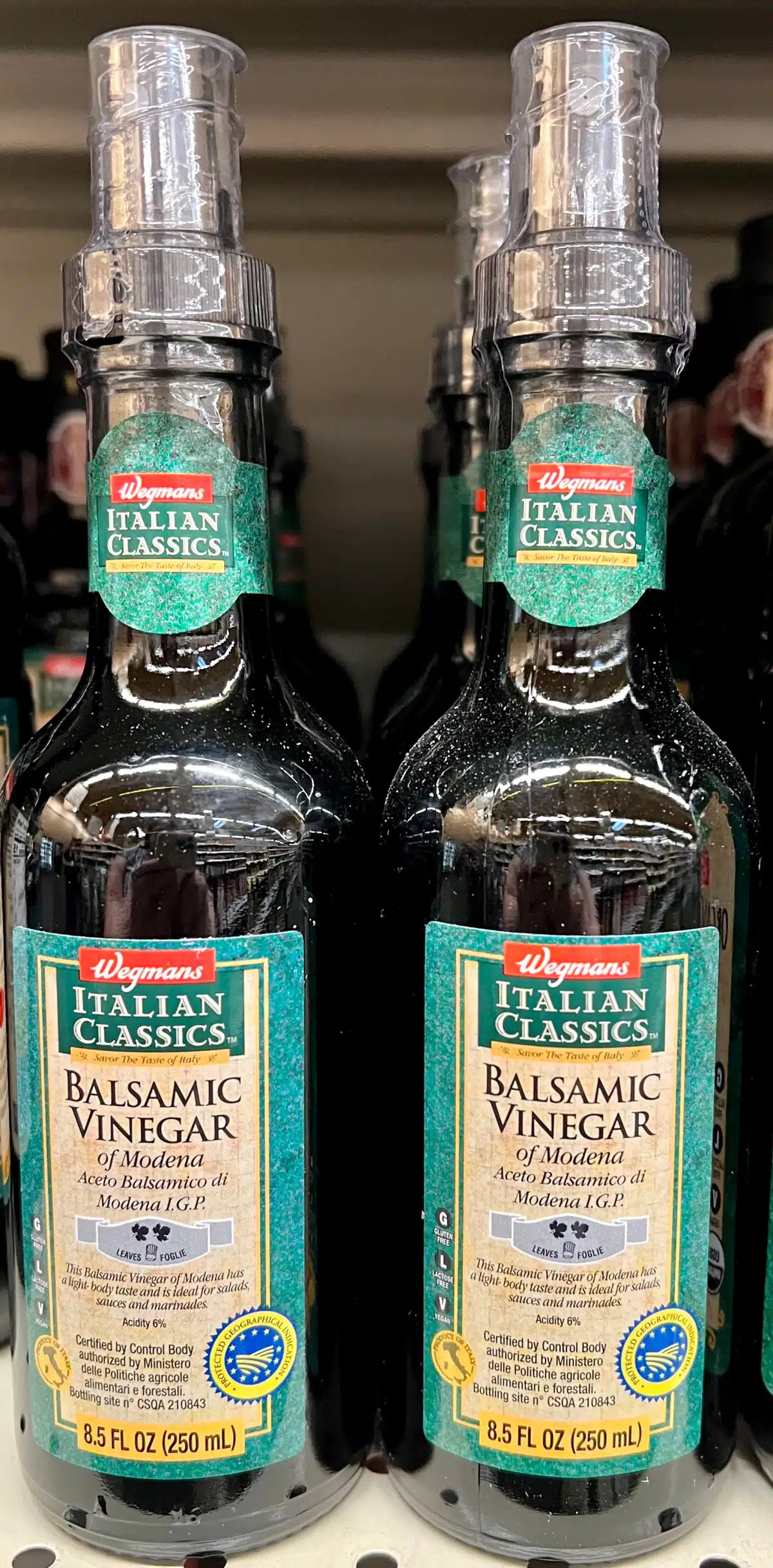
You can also replace white wine vinegar with Balsamic vinegar.
As previously mentioned, white wine vinegar is made from white wine.
The reason balsamic vinegar works well in its place is that it is also made from grapes, but it is aged longer than white wine vinegar giving it a sweet, syrupy consistency.
Because of its sweetness, balsamic vinegar works well if you use it instead of white wine vinegar when you don't want your dish to have any acidity.
Using balsamic vinegar will allow you to control the amount of sugar added to your dish as well.
Dry White Wine

Dry white wine can be used as a white wine vinegar substitute in a variety of recipes.
Dry white wine is simply fermented grape juice that has been allowed to dry out and become alcoholic.
This wine has a very mild flavor that can be used in place of vinegar in recipes that call for white wine vinegar, such as salad dressing, pickling, and marinades.
To use dry white wine as a substitute, you may need to dilute it with water.
This will reduce the acidity of the wine. You should use one part dry white wine to four parts water.
Dry white wine can be used in place of white wine vinegar in most recipes that call for vinegar.
Lemon Juice
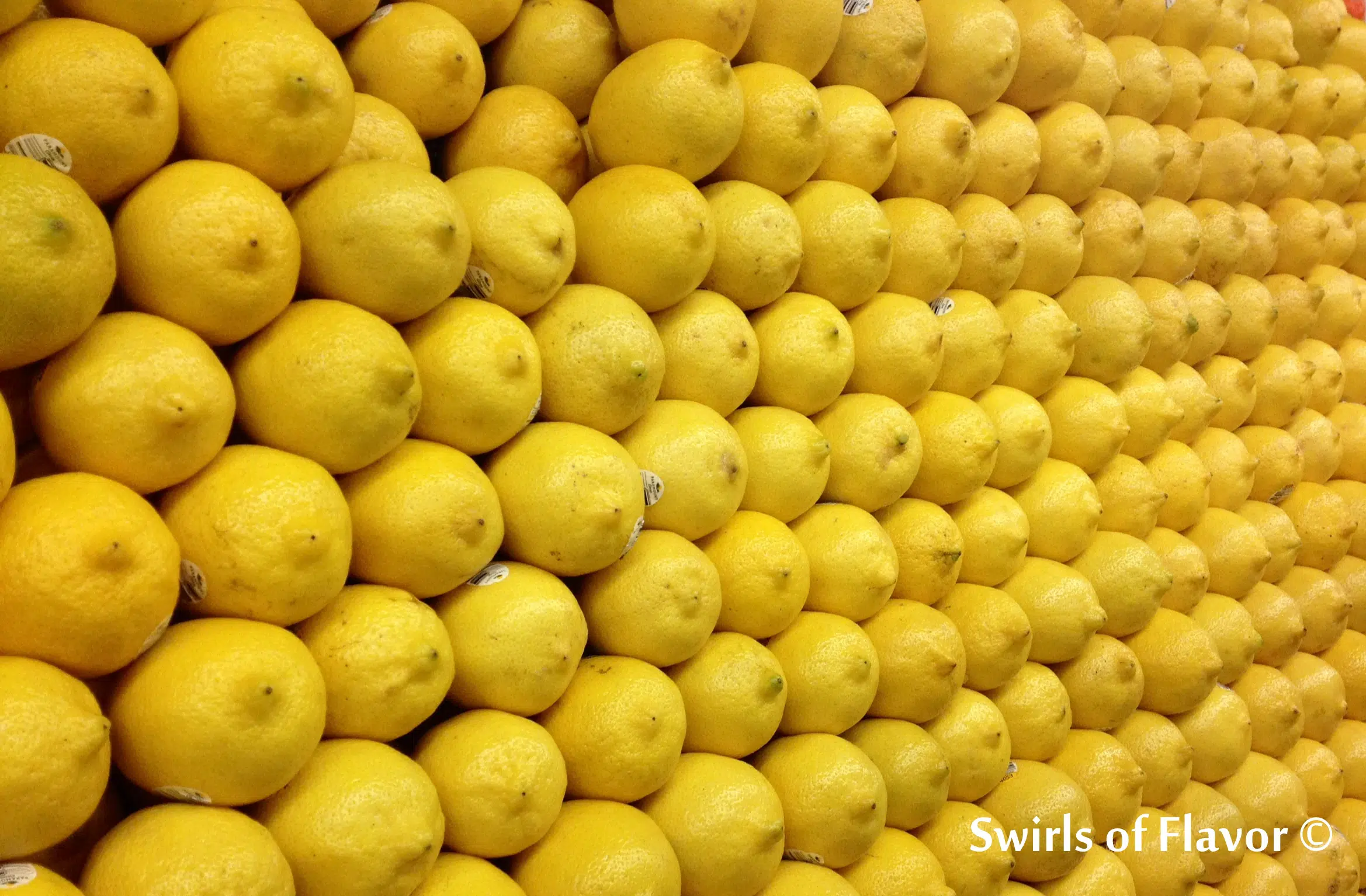
Lemon juice has a similar acidity level and flavor profile to white wine vinegar making it the best choice as a substitute.
This citrus juice is also less expensive than white wine vinegar, which makes it a nice option if you use it often.
Both fresh lemons or bottled lemon juice will work well as substitutes for white wine vinegar in your recipes.
Mirin
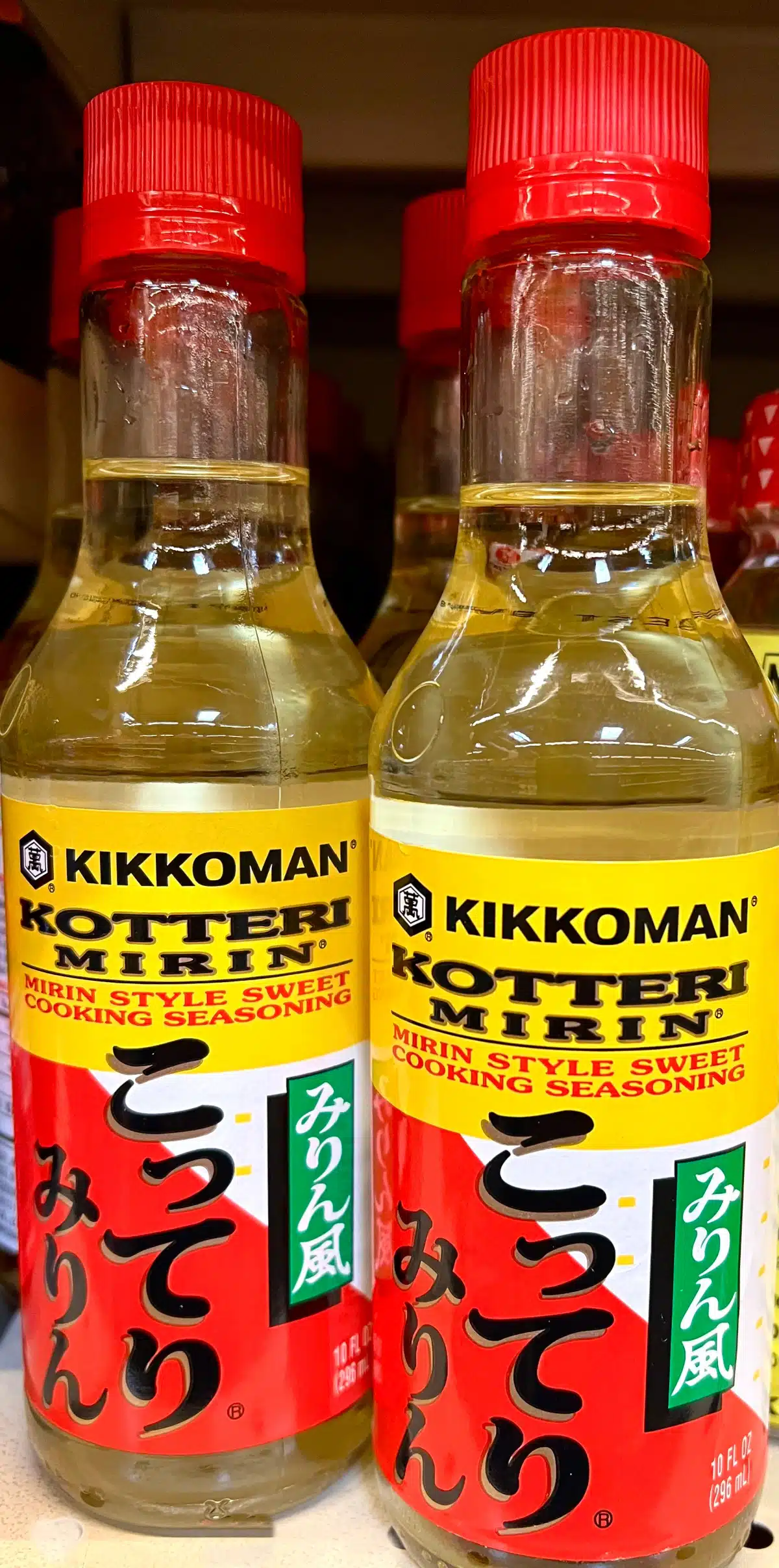
Mirin is a sweet rice wine that can be used as an alternative of white wine vinegar.
The alcohol content in mirin is between 8-12%, and it has a sweet taste that is similar to honey.
It is made with cooked short-grain rice and can be found in the Asian food aisle at most grocery stores.
It can be used in many recipes that call for white wine vinegar, such as salad dressings and vinaigrettes.
Mirin also works well as a marinade for meat and fish because of its sweet flavor profile.
Red Wine Vinegar
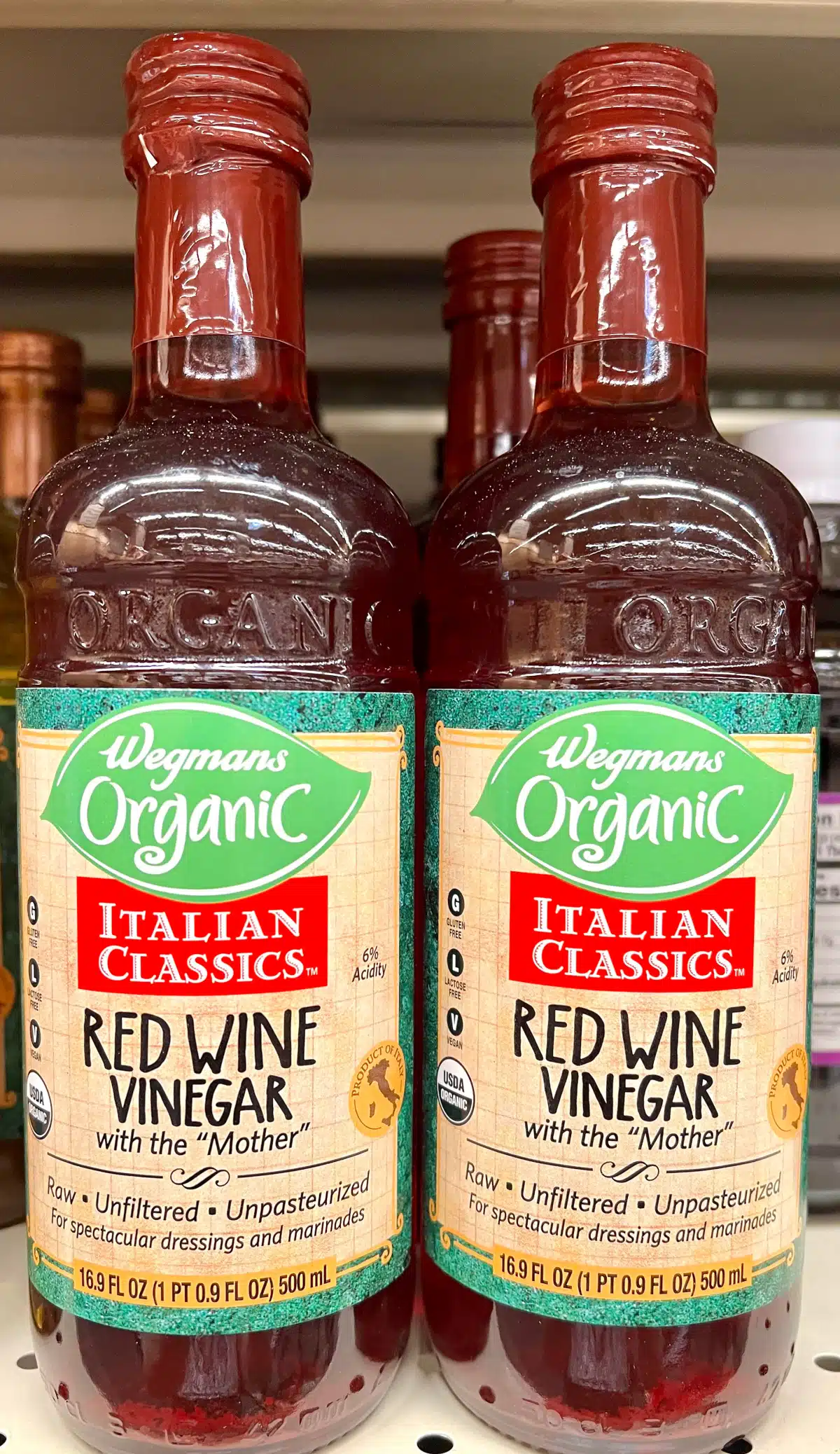
You can happily use red wine vinegar instead of white wine vinegar, and it makes total sense.
Both white wine vinegar and red wine vinegar come from wine.
Red wine vinegar is made from red wine and has slightly higher acidity than white wine vinegar.
The color of the vinegar is a deep red, and it has a strong flavor that can be used in many recipes.
Red wine vinegar has been used as a white wine vinegar substitute for years because it has similar characteristics and can be used in many recipes.
This type of vinegar is often used in salad dressings, sauces, and marinades.
Rice Vinegar
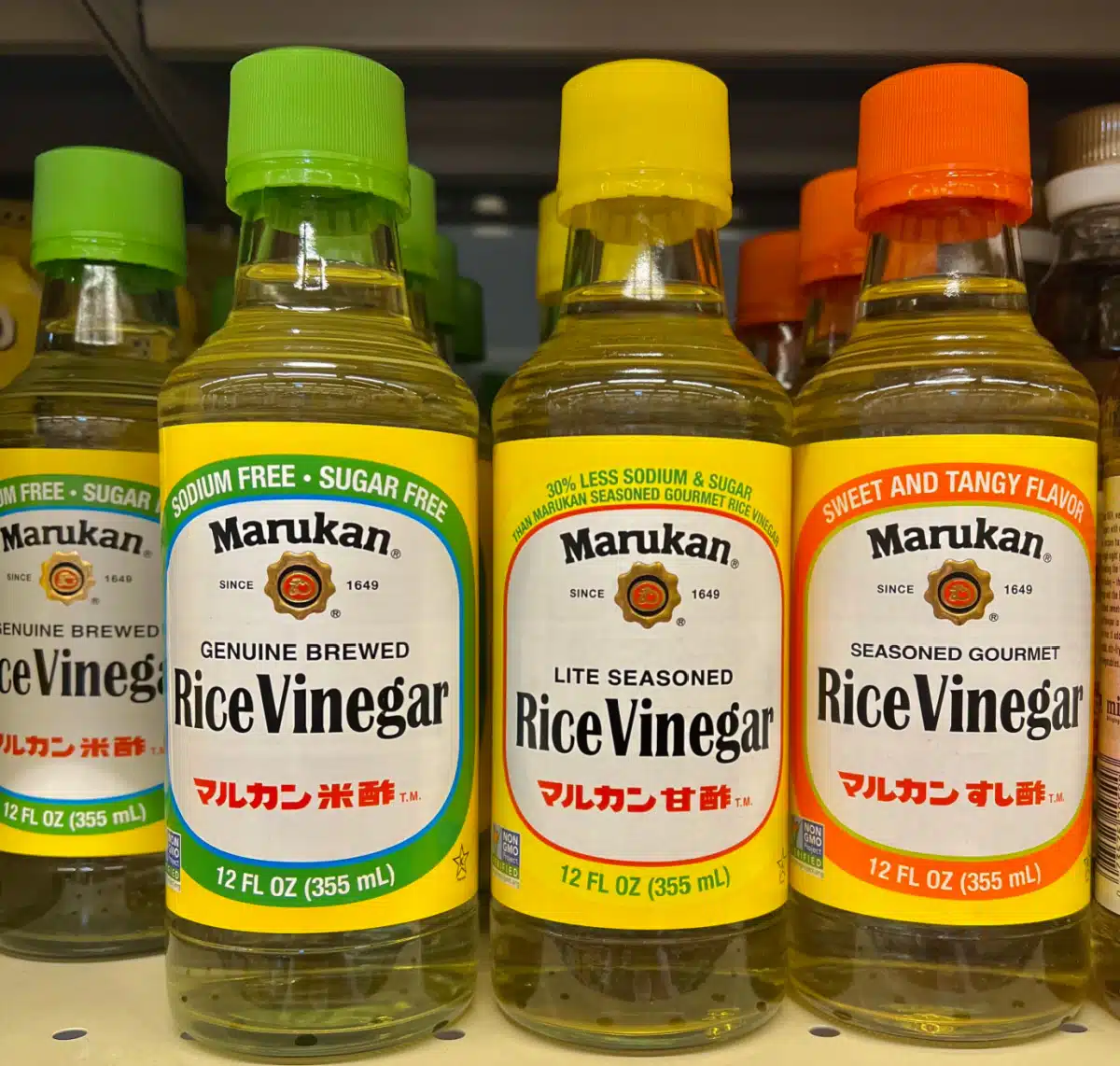
Rice vinegar, a vinegar that is actually made from rice, is also a good sub for white wine vinegar.
It has a light flavor that makes it easy to use in recipes that call for white wine vinegar.
Rice wine vinegar will not overpower the other flavors in your recipe because it is slightly sweeter than white wine vinegar.
Rice wine vinegar is low in alcohol content and doesn’t have the typical harshness that some people find off-putting about regular white wine vinegar making it easier on your stomach when you eat foods prepared with it as an ingredient.
White Balsamic Vinegar
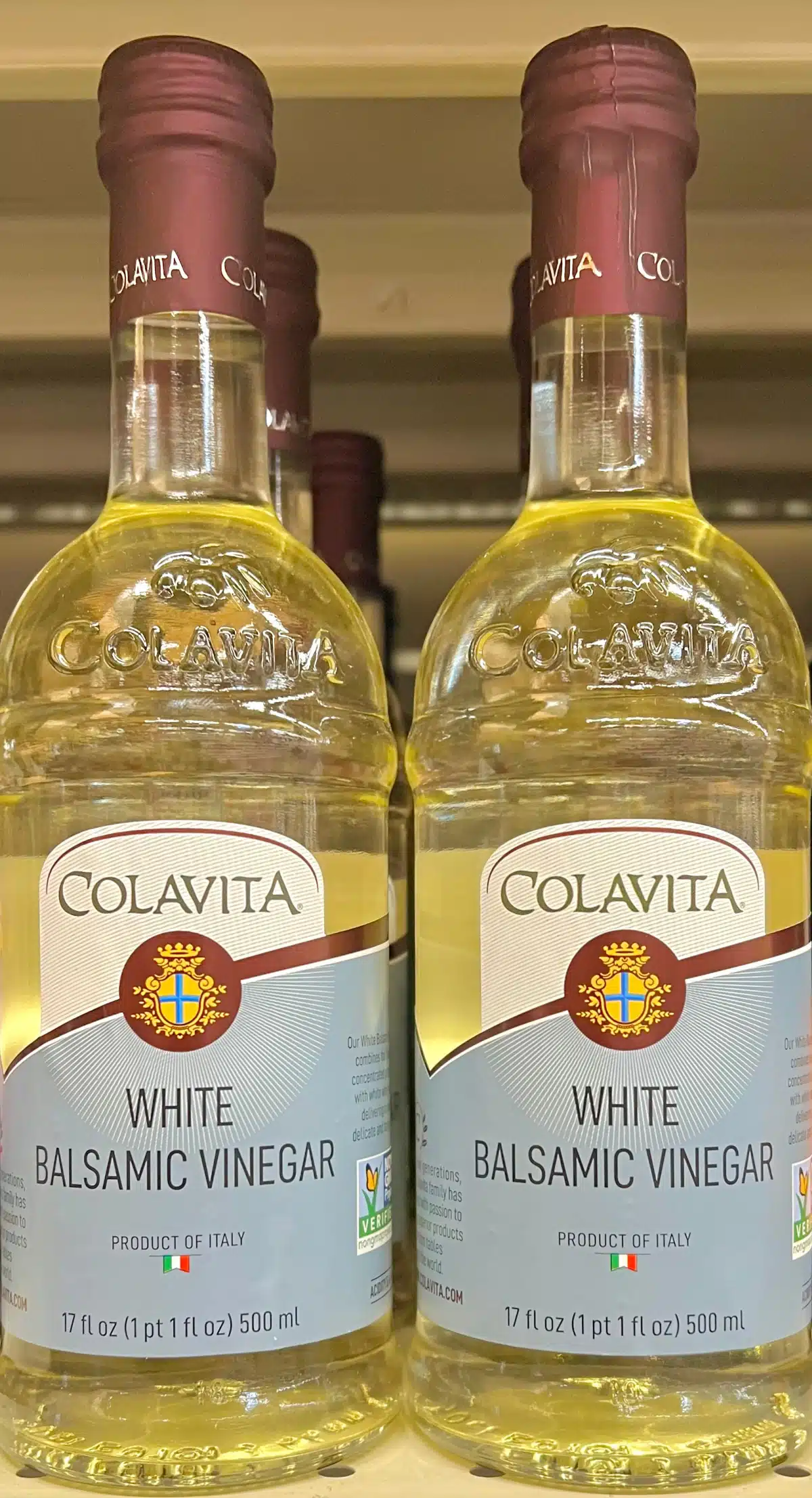
White balsamic vinegar can be used as a substitute for white wine vinegar however it will add a slight sweetness that you wouldn't get from the white wine vinegar.
White balsamic vinegar has a delicious flavor that is nicely balanced between sweetness and acidity.
White balsamic vinegar has a milder flavor than the dark traditional balsamic vinegar and is also similar in color to white wine vinegar making it a slightly better choice than dark balsamic vinegar.
White Vinegar
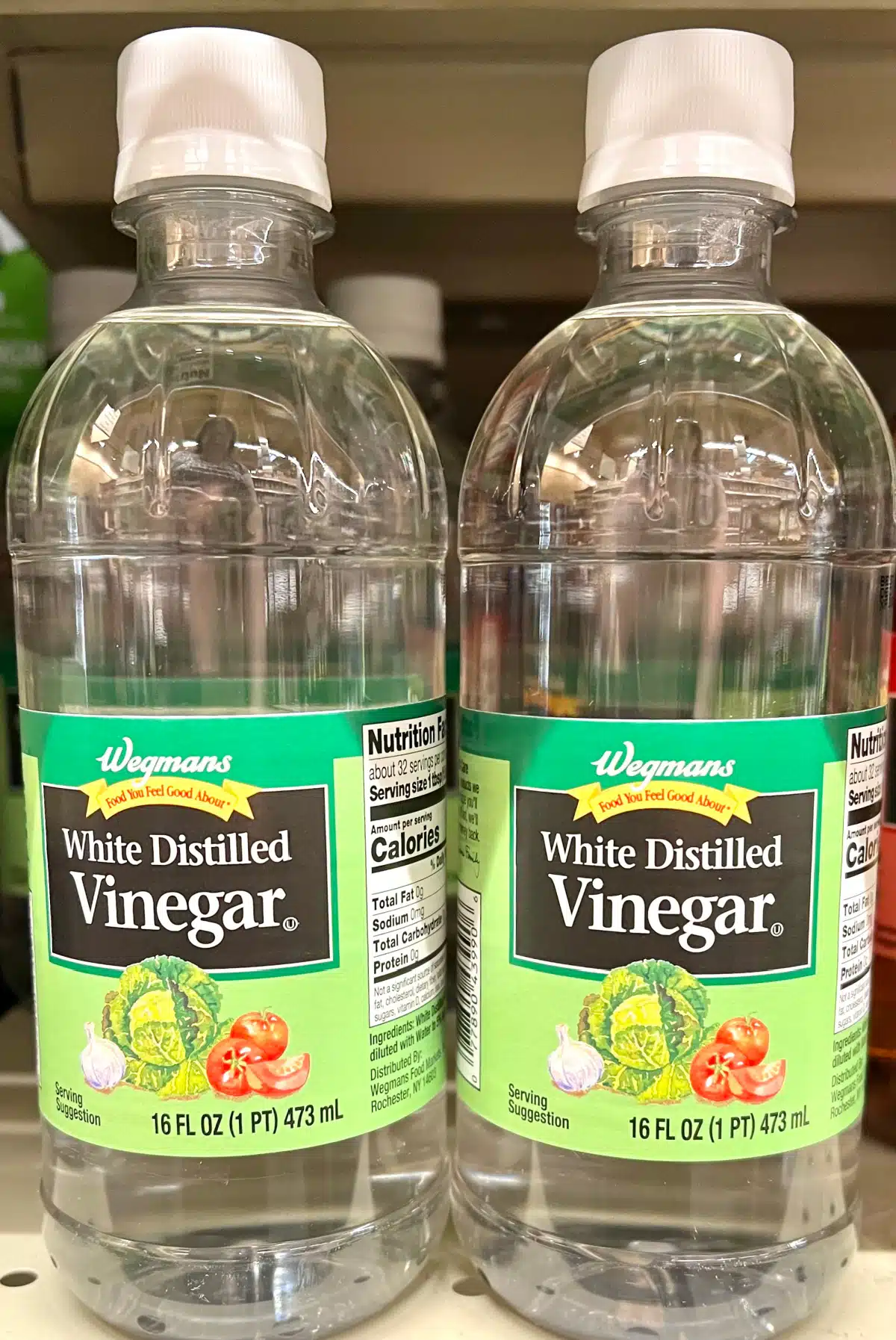
White vinegar can be a suitable replacement for white wine vinegar, however, you will most likely have to dilute it since it tends to have a bolder flavor in comparison.
Start by adding less white vinegar than your recipe calls for, then taste and adjust if necessary. Sometimes a pinch of sugar will help to balance the flavor.
Recipes made with vinegar
Easy Recipes made with Vinegar
Conclusion
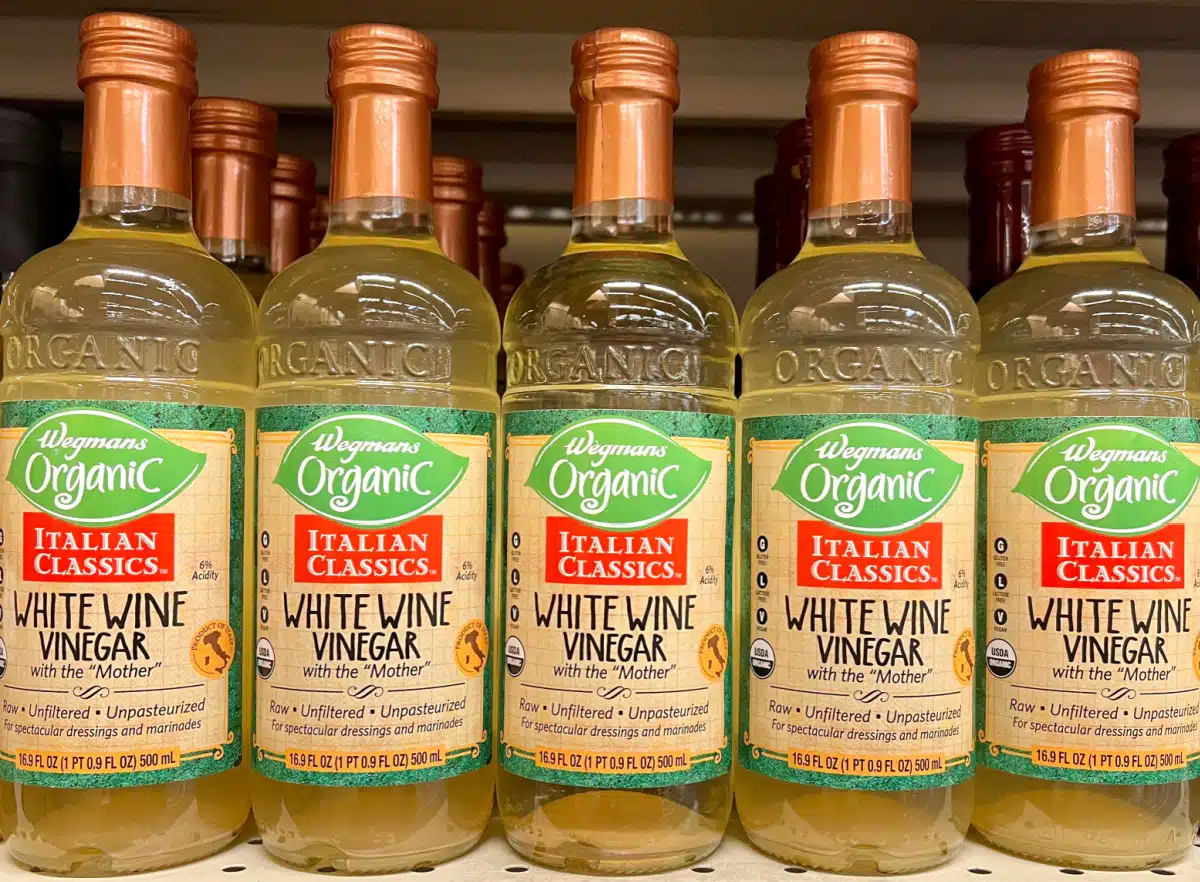
In conclusion, there are several good options that you can use as a substitute for white wine vinegar.
Try using one of my white wine vinegar replacement suggestions that you have on hand in your pantry or kitchen cabinet and see how you like it.
Keep in mind that you may need to adjust the amount you use to replace the white wine vinegar due to the acidic levels of the alternatives.
I’m sure one or more of these replacements will quickly become your favorite for you to use!



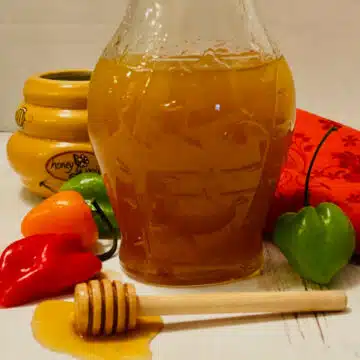
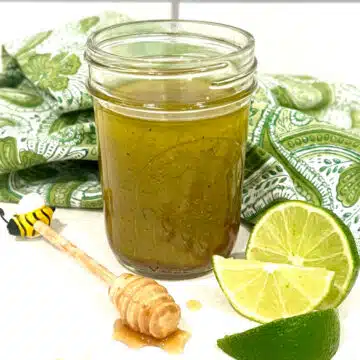

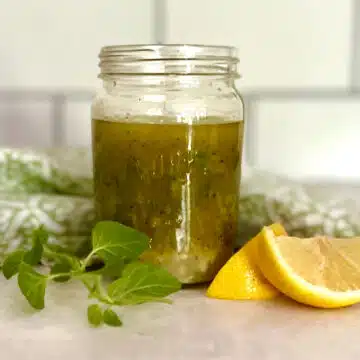
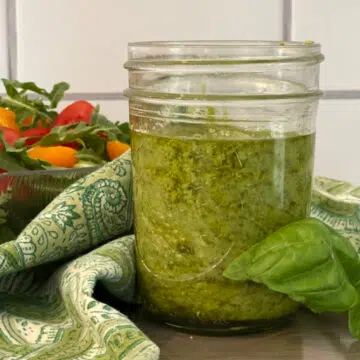

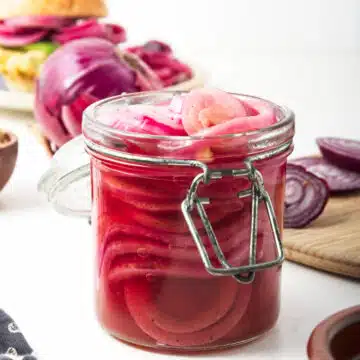
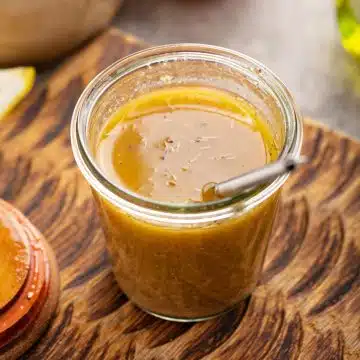
Thanks for stopping by. Leave a tip or comment...